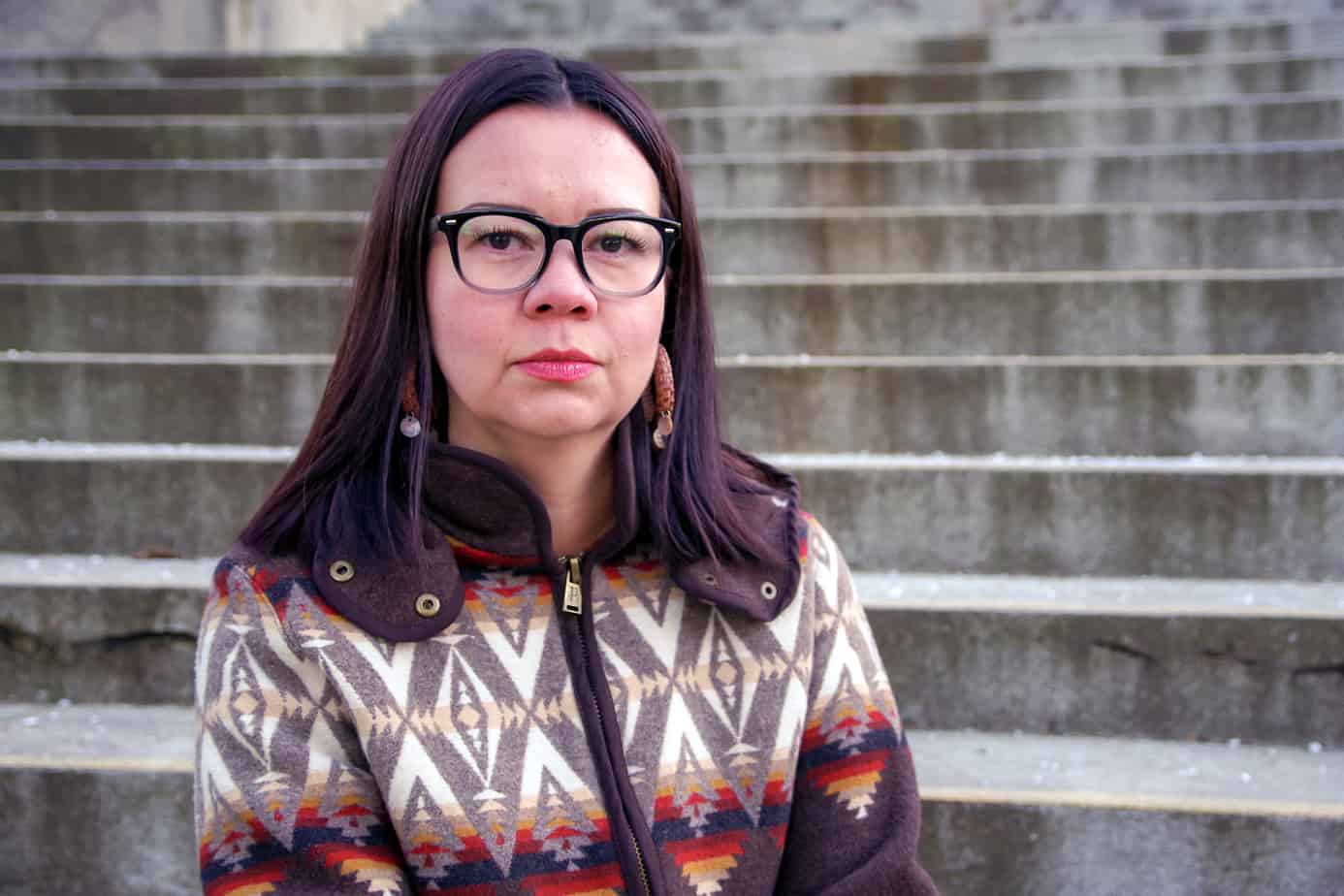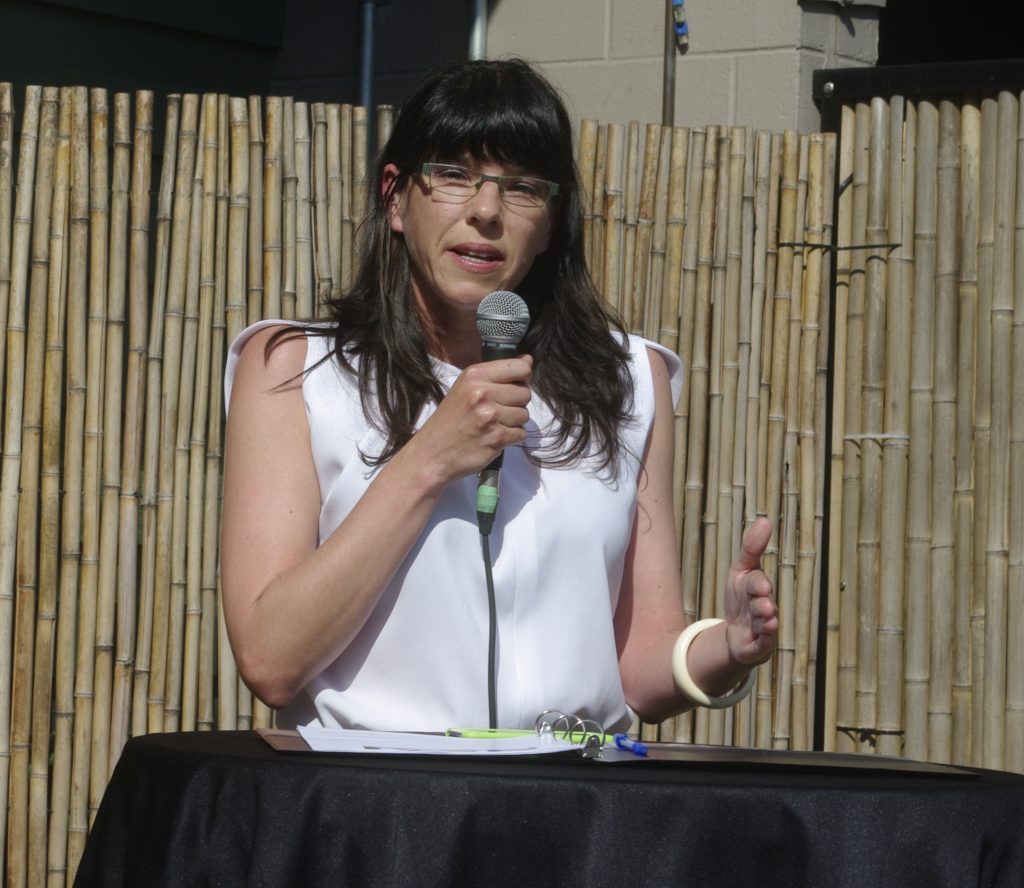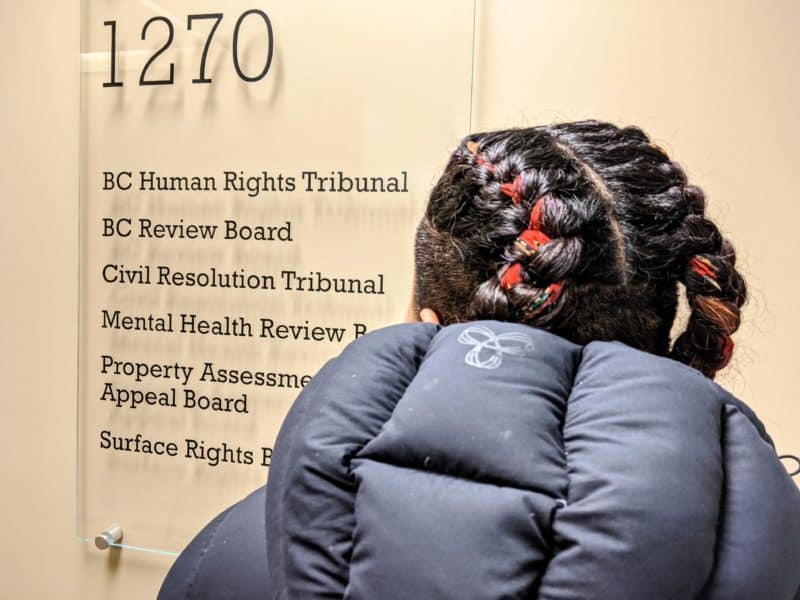
The City of Reconciliation has quietly halved the fund some say is a key source of funding for its reconciliation projects. Though the city manager says funding remains stable, others are now calling into question Vancouver’s commitment to reconciliation.
Councillor Melissa De Genova initially moved to cut the city’s Innovation Fund altogether and use its $2 million budget to help reduce property taxes. Mayor Kennedy Stewart suggested the fund instead be reduced by half, which a majority of the newly elected city council voted to support at their Dec. 18, 2018 meeting.
Since its inception in 2012, the Innovation Fund has provided funds to help kickstart social projects such as the Rent Bank, which provides interest-free loans to low-income people facing eviction; support social enterprises such as the Potluck Cafe; and help fund environmental projects like a sea-level rise design challenge to seek solutions for the city’s most flood vulnerable areas.
According to a city staff report, the fund was developed to leverage matching third-party funding to support projects that “enhance our local economy with an emphasis on social enterprise, particularly in the green sector” with one-time grants. Over the years, it has also helped fund numerous projects related to reconciliation with Indigenous people, which the previous city council, led by Vision Vancouver, had prioritized since declaring itself a City of Reconciliation in 2014.
But with the Innovation Fund now cut in half and no other fund explicitly earmarked for reconciliation initiatives, some question the future of reconciliation in Vancouver and the newly elected council’s commitment to it.
Decision disappoints former Aboriginal relations manager
“I was very disappointed that they did this. I just shook my head,” said Ginger Gosnell-Myers, Vancouver’s first-ever manager of Aboriginal relations.
The fund was a key source of funding for reconciliation projects, said Gosnell-Myers, who resigned in March 2018 to run Squamish hereditary chief Ian Campbell’s unsuccessful mayoral campaign, after leading Vancouver’s reconciliation efforts from 2013 to 2018 (and who, full disclosure, is my sister-in-law).
“Councillors need to consider whether they felt they knew enough about the fund — and the impact of reducing it — before they made that decision,” she said.

Though De Genova introduced the motion to cut the Innovation Fund, she couldn’t tell the Dec. 18 council meeting exactly what it funds. “I’m not quite sure what exactly the Innovation Fund funds, completely,” the NPA councillor says in this video of the council meeting (at the 2 hours and 20 minute mark).
“It has, in past, funded several excellent projects,” she said, alluding to some arts and culture projects. But in the interest of being fiscally responsible and fair and equitable, she continued, “I think it is important to do what we can to reduce property tax in general.”
Green Party Councillor Adriane Carr was one of only a few councillors to question De Genova, saying the fund supported some “incredible start-ups,” as well as several reconciliation projects. “I think there’s a real value to the Innovation Fund that we will be looking at as we go through the budget in a more collaborative way over this next year for 2019,” Carr said, adding that she would nonetheless “reluctantly” support De Genova’s motion.
Mayor Stewart cautioned that he was “a little worried when we don’t know what the fund does and we’re eliminating it altogether.”
“I think by keeping that one million in there, we’re keeping the door open for important innovations that we may or may not use,” he said, as he suggested cutting the fund in half, instead.
It was a Vision ‘slush fund,’ De Genova alleges
Stewart didn’t return repeated calls for an interview. But De Genova told The Discourse that she targeted the Innovation Fund because it seemed to lack a clear mandate, and was seen by some members of the public as “a Vision Vancouver slush fund.”
“I just wanted some transparency and accountability on that fund,” said De Genova, who is now in her second term on council.
“As the chair of finance for the standing committee on finance and city services, it was a huge concern for me, and that’s why I felt that the fund should be cut,” she added.
Asked if she knew about the fund’s support for reconciliation projects, she said, “there’s nothing in the Innovation Fund that specifically says that it supports reconciliation projects or grants to Indigenous people, organizations or cultural events.”
Such funding can come out of the city’s contingency budget, she suggested, or surplus funds from previous budgets, or arts and culture grants.
“Maybe what we need instead is a specific fund that can be drawn out of for events” or community collaborations, that could be supported in part by corporate sponsors, she continued.
“But that funding doesn’t need to come from the Innovation Fund. And I want to be very clear that I do support those projects.”
She said the new city council remains committed to reconciliation.
“I see this council as having a commitment to make sure that we move forward with reconciliation in the City of Vancouver,” she said. “And I can tell you personally that I certainly have made a commitment to do so.”

Carr, who has been on council for seven years, said she was unaware of the full breadth of reconciliation projects funded by the Innovation Fund, or the impact of cutting it.
“There was never any mention made of the fact that it helped fund Indigenous programming within the city, and our goal to be and become a City of Reconciliation,” she told The Discourse, noting the fund supports other projects, too.
Since this council is newly elected — and most of its members in the first few months of their first term — more information was needed to properly assess De Genova’s motion, Carr said. “To be perfectly transparent and honest about it, in retrospect we should have asked for the list of projects or programs that that Innovation Fund has funded in the past. That would have been better process.”
Despite the funding cut, Carr said she remains committed to reconciliation.
“I certainly feel very committed to not only continuing, but expanding our efforts around reconciliation,” she said. “I don’t want to in any way make it sound like we deliberately cut funding that we knew was significant for reconciliation.”
Reducing it will ‘impact the ability to continue reconciliation work,’ says Gosnell-Myers
Gosnell-Myers remains troubled by the reduction to the Innovation Fund.
“Reducing it is going to impact the ability to continue reconciliation work,” she warned, “because it’s competing for funding with other priorities and there’s going to be less funds to draw from.”
Reconciliation projects aren’t necessarily lined up when the city’s budget process concludes each December, Gosnell-Myers explained. Opportunities for new reconciliation initiatives arise throughout the year, and often require matching funds from other levels of government. The city doesn’t have dedicated reconciliation funding, and can’t just dip into other departments’ budgets or go into debt after a budget has been passed, when opportunities arise. So the Innovation Fund provided a pool of resources to support reconciliation projects, she said.
Examples of previous reconciliation projects supported by the Innovation Fund include: $350,000 to support arts and culture initiatives in collaboration with First Nations; an October 2018 report to council notes that $130,000 for reconciliation-related projects came from the Innovation Fund; and $75,000 to the Saa’ust Centre for cultural support and trauma-informed counselling in the Downtown Eastside. And in Gosnell-Myers’ December 2017 report to council, she notes eight Indigenous healing and wellness grants supported in part by $100,000 from the Innovation Fund. The fund also helped city departments hire more Indigenous staff and build reconciliation initiatives into their work plans, she said.

In the absence of plans to compensate for reducing the Innovation Fund, Gosnell-Myers wonders if the fallout will mean less activity on the reconciliation front.
“Cutting the Innovation Fund was careless and not well thought out,” she said. “It’s going to be a hard lesson to learn that it’s easier to cut a fund than to find money.”
‘We are 100 per cent committed to reconciliation work,’ says city manager
But Vancouver city manager Sadhu Johnston says the Innovation Fund only funds a small percentage of reconciliation projects, and it’s not accurate to say that it is a key source of their funding.

“I guess that a very small percentage of the reconciliation work we’re doing at the city would have come from the Innovation Fund,” he told The Discourse.
Projects funded through the Innovation Fund are generally one-offs with a one-year funding span, and they must pilot a new and innovative approach to something, he explained.
In 2018, funding was obtained from other city funds to support a healing and wellness centre, a centennial pole project, the city’s Haida Now exhibit, and an Aboriginal mapping project, he said.
And in 2019, funding has already been allocated in the budget for hiring Indigenous planners in different city departments, he added.
“What I’m trying to say is that there’s many, many ways that the city is funding reconciliation work,” he said. “And the Innovation Fund was kind of only a one-year small portion of this.”
“We are 100 per cent committed to reconciliation work and there is no reduction in that part as a result of the Innovation Fund not getting the $2 million,” Johnston said. “It is inaccurate to say that, in this case.”
Indigenous advisory committee not consulted
Penny Kerrigan is a member of the city’s Urban Indigenous Peoples’ Advisory Committee, which ceased activity along with all other community advisory committees just before the election. The committee was still active, though, during the budget process’ public consultations. Kerrigan says members weren’t notified of any plans to eliminate or reduce the Innovation Fund, something Johnston confirms.

“I’m actually appalled,” Kerrigan told The Discourse.
“I am really upset that they haven’t contacted our advisory group, at least to talk to or even make recommendations, they haven’t met with us.”
“This was going to affect the Aboriginal community. That’s something that wouldn’t have been cut. I don’t know why they cut it,” she said.
Kerrigan says the move has left her with questions about this city council’s commitment to reconciliation.
“I don’t even know if this council is keen or is willing to work on any kind of reconciliation,” she said. “They haven’t shown any initiative moving forward with this new city council.”
“The thing is, reconciliation is ongoing,” she noted.
“It’s not something you just start — if you call yourself the City of Reconciliation, reconciliation is forever until you’re reconciled.”
‘Extremely detrimental to go backwards,’ says former councillor
Former city councillor Andrea Reimer has been silent on council issues since not running for office again in the last civic election. Speaking from Boston, Mass. where she is doing a fellowship at Harvard University, Reimer says after serving with Vision Vancouver for a decade she’s left the new council space to find its own way. But now she feels obligated to enter this conversation about council’s decision to reduce the Innovation Fund.
Reimer was considered by some to be a driving force on council for reconciliation and for the Innovation Fund during her time in office. The Innovation Fund was critical to the city’s reconciliation efforts, she told The Discourse.
“I hate making unequivocal statements, but I think it’s reasonable to say that the reconciliation project would not have happened without the access to that fund,” she said.

“They might have happened eventually, but it’s not — the very nature of reconciliation is as much about when you’re doing things, and how you’re doing things, as it is about the things you’re doing.”
So working with Indigenous communities as their ideas emerge, and developing trust together, is important to building those relationships that lead to reconciliation, she explained. And “having money available to be able to act, and to authentically engage with jointly desired projects… is critical to the trust and the relationships that you’re building. In my opinion, reconciliation is — it’s pretty much all about relationship.”
Moving forward with reconciliation became a “moral imperative” for the previous city council, Reimer said.
It was reading the 2011 Urban Aboriginal Peoples Study, and gaining a new understanding of the discrimination it revealed — and its implications for some of the problems council saw as “most critical for the city,” from homelessness to substance use to missing and murdered Indigenous women and more — that sparked council to act, Reimer said.
“This is part of a much bigger story that goes back generations, and will keep moving forward generations, unless we can do something totally different,” she said.
The new councillors may not yet fully understand city budgeting, but they also don’t yet understand reconciliation, she suggested.
Every new council should familiarize itself with reconciliation by making space for Indigenous people to talk about the harm colonization has caused — by listening, then acknowledging what they heard with action, Reimer said.
“It’s reasonable that each new generation of councillors is going to have to go through that process,” she said, but “it would be extremely detrimental to go backwards on it.”
If the decision to halve the Innovation Fund was made “out of ignorance” of how reconciliation works, and how cutting the fund could undermine it, Reimer says she hopes council will now “immediately review that decision.” [end]
This piece was edited by Robin Perelle. Sign up here for our Urban Nation newsletter.
Editor’s note, Jan. 30, 2019: This article was updated to clarify that the four 2018 reconciliation initiatives highlighted by the city manager were funded not by the Innovation Fund, but rather by other city funds.



